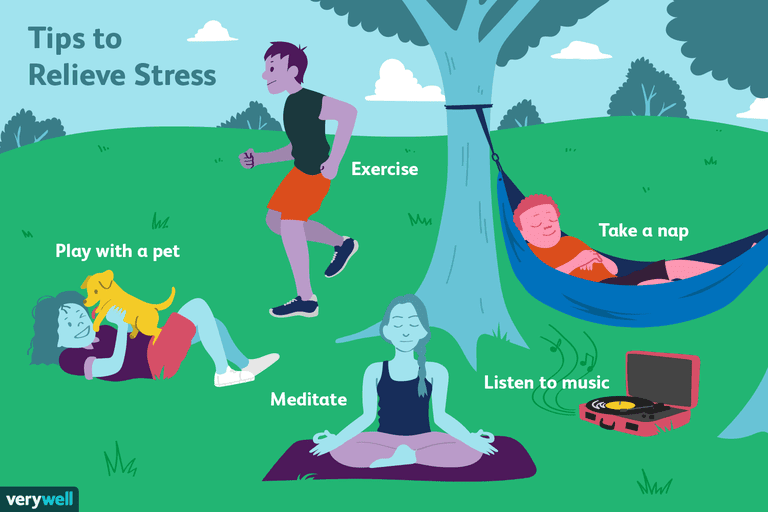Stress tends to occur when you find it hard to cope with the demands of everyday life, be it school, work, or relationships. In as much people dread getting stressed, some stress can be beneficial. For instance, certain forms of stress can trigger the body to generate more drive or energy to deliver work or wade through a tough situation.
Extreme amounts of stress can, however, have detrimental impacts on your health. They can hamper the neuroendocrine, cardiovascular, immune, and central nervous systems while also having a severe emotional impact. Cases of chronic stress, if not treated, can lead to health complications that range from muscle spasms and pain, weak immune system, and insomnia to anxiety and high blood pressure.
According to research, stress can be the cause of major health conditions such as depression, heart disease, and obesity.
The use of positive and healthy stress management methods has been found to thwart the negative impacts of this issue. But it is necessary to point out that people are different and thus a technique use to help one individual may not be as useful for another. Moreover, personal preference and interests such as playing or listening to music, gardening, painting, taking a walk, swimming, yoga or meditation have been considered effective stress management solutions. Again, people have different preferences and interests.
The stress management options used can have long-term or short-term results. Below are five techniques that psychologists and health practitioners suggest can help reduce stress.
1. Take a break from the stressor
Things such as overdue loan payment, a big work project whose completion is soon due, or a baby that keeps crying can seem hard to get away from. However, you can allow yourself to take a step back and focus on something else that will not stress your mind. The idea is to engage in something that will take your mind off the stressor, even if it is for a couple of minutes. That short break can give you a fresh perspective on how you to handle things so that you are feeling less overwhelmed.
2. Exercise regularly
The benefits of living an active lifestyle can never be overstated. Exercising is good for the mind, body, and soul and has exceptional long-term benefits. Something like a run, swim, jog, dance or brisk walk for around 20 minutes daily is enough to keep you feeling upbeat and in better moods. Engaging in such activities in the midst of a stressful period can have a positive effect that lasts for hours.
3. Do your best to be happy
Try and to smile and laugh more often. The brain and your emotions are interconnected. When people are feeling stressed, it tends to show on their face. Therefore, laughing and smiling can be a means of countering that tension and improve your moods so that you can overcome your situation.
4. Get social support
Sharing your vows with someone helps relieve stress. Ensure that the person you open up to is more than just a colleague or friend. Confide in a close confidant; someone you trust and you believe will understand and empathize with your situation. At times, people will reach out to a family member; but family can be a stressor.
5. Embrace meditation
Meditation is beneficial for the mind and body. It can help you feel relaxed or to focus. A mindful prayer is also a form of meditation. Practicing these two can help you have new perspectives. They also help you to appreciate your efforts and nurtures self-compassion and forgiveness for what you fail to attain. Meditation can help you overcome, physical, mental, and emotional stress. Meditating for a few minutes every day can have an immediate health impact, much like exercising. It can build up a bank of energy to help you deal with such situations - look at this post from London Mediation Centre to get an idea of what we’re on about.
The information shared above is an overview of content shared online by the APA Help Center, and it focuses on helping people embrace natural methods or managing, reducing, or overcoming stress.


